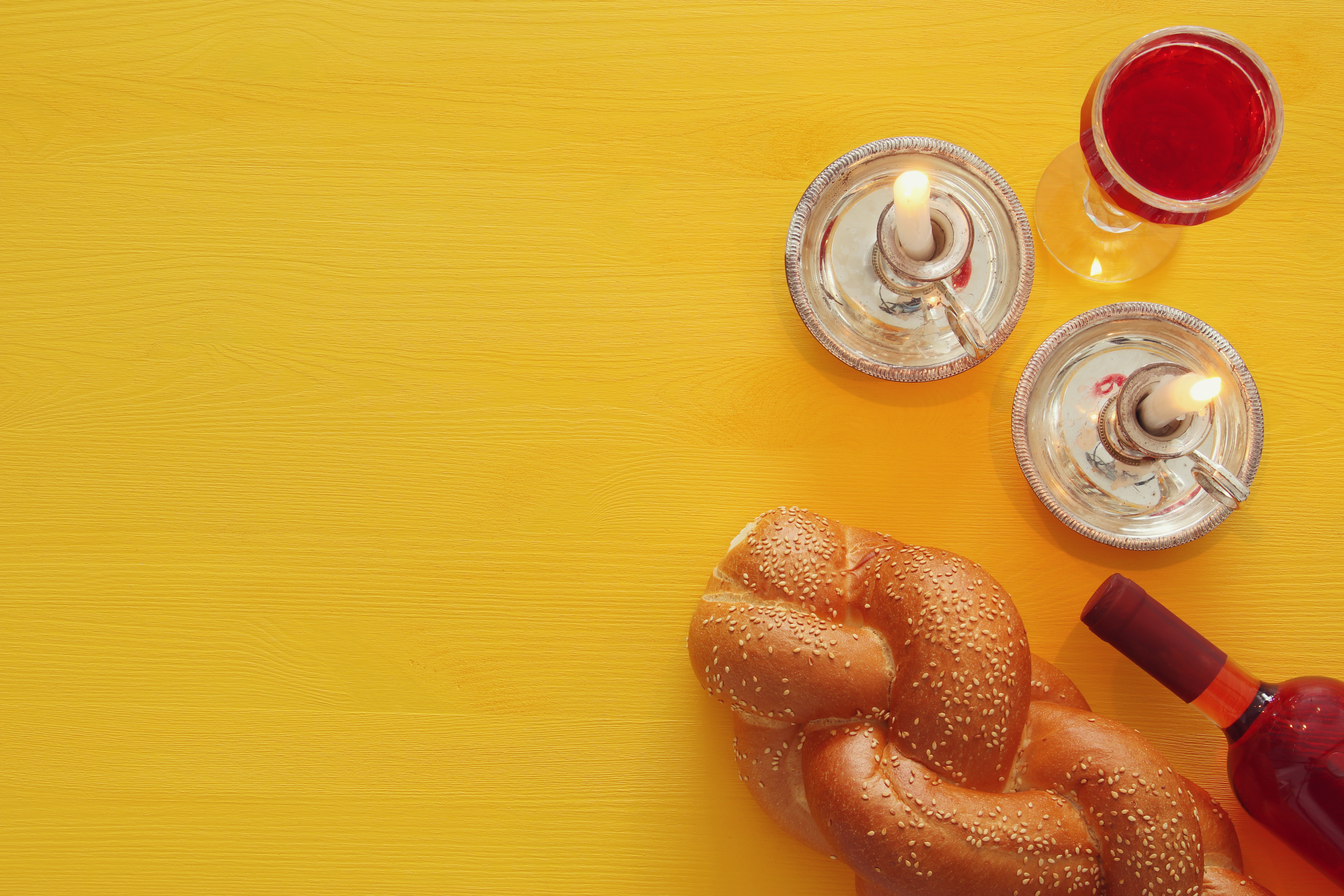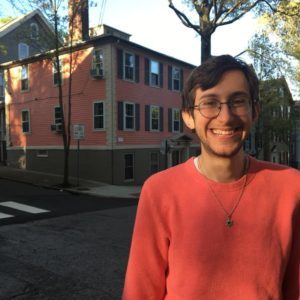In an off-campus apartment on Arnold Street in Providence, Rhode Island, my friends and I said the blessings, composed plates of salad, pasta, hummus, and challah, and started talking about Palestine.
“How can we support pro-Palestinian activism from a distinct Jewish perspective?” We sprawled on couches in a loose circle so the dozen or so of us could all see each other. “What even is a ‘Jewish perspective?’” The candles melted away and the box of wine started to dry up. “I want to reject the idea that my identity can only be based in victimhood. Because we know Israel uses that to justify victimizing Palestinians in our name.” I sat in the corner of the room, taking only small sips of my wine. I wasn’t yet used to the taste.
Before I came to Brown, I had observed Shabbat maybe twice in my life. I had thought about Palestine a bit more than that, though. My contribution to my fifth-grade Hebrew school class Haggadah was a ten-sentence essay on why the “Palestinian-Israeli conflict” was a modern-day plague, arguing that negotiation, not war, was the only way to create peace between two groups of people who both had claims to the land.
Though I quit Hebrew school after sixth grade, as I grew more aware of the actions of the Israeli government past and present—especially during the 2014 Gaza War—I continued developing my vaguely pro-Palestine politics up until my freshman year of college.
Despite my moral unease, Israel didn’t figure particularly prominently in my identity before I left home. I knew a few things: my parents didn’t like Netanyahu; my brother supported the Gaza flotilla; I opposed US support of military intervention in Gaza and wanted a two-state solution. These were positions that seemed to me not only eminently reasonable, but, in fact, the whole ballgame—this, I thought, was the progressive stance on Israel-Palestine.
Jewishness, on the other hand, was far more complicated and contested for me. In my secular family, it often felt that Jewish was something we just were, something that owned us more than something we did. I was Jewish, I knew, but that felt like a given, a matter of circumstance. In seventh grade, I watched as my friends had their bar and bat mitzvahs, and I suddenly felt the desire to return to Hebrew school in order to not miss out on this validation of identity. Maybe I was afraid someone would find me out, that for all my talk, for all the exaggerated Brooklyn accents I put on, I wasn’t “really Jewish.”
I looked for anchors to tie me to a sense of identity, but even these connections felt false. I remember telling my mother on the first night of Hanukkah sometime in high school that I didn’t want to sing “Hanukkah O Hanukkah” or anything else in English while we lit the candles. However, I also didn’t want or know how to sing the Hebrew prayers, wrapped as they were in religiosity, complicated words, and foreign melodies.
Throughout my ambivalent search for Jewishness, I never turned to Israel for the connections I desired, even though that path is laid out in front of young Jews like me again and again. Israel seemed to have nothing to do with my being a Jew, but did have a lot to do with war. Yet it wasn’t until I arrived at school and came to the very simple understanding that the victim of Israel’s aggressions was not some contested piece of land that deserved to be a state (or two), but rather oppressed Palestinian people who deserved justice and equality, that I found a Jewishness that gave Israel prominence.
I became an anti-Zionist the same way that I became a Jew: I went to to a leftist Shabbat group (an early version of what is now Friday Night Jews) and discussed how to embrace the memory of the Holocaust and experiences of antisemitism to advocate for Palestinians as Jews. I listened to podcasts like Treyf and learned about how to mobilize Jewish identity to enact solidarity with Indigenous peoples in the Americas and in Palestine.
I attended IfNotNow meetings and learned Hebrew and Yiddish songs I had never sung before. I read about the Jewish Labor Bund and discovered a tradition of Jewish social justice that rejected Zionism in favor of a commitment to doikayt (“hereness”) and local political struggles. I marched in the spring rain with hundreds of Jews, Palestinians, and other New Yorkers to mourn the Palestinians whom the Israeli military had killed during the Great March of Return and protest our senators’ inaction in the face of it. And, finally, I found a community and home in the group that organized that march, Jewish Voice for Peace.
In this way, Israel has become central to how I understand myself and my Jewishness. It sometimes feels strange, like I am building an identity based in opposition. But when I sit in a packed living room on Shabbat these days, on the floor or, if I’m lucky, the arm of a chair, I look around the room and I see the beautiful, positive community I am a member of. When I go to Students for Justice in Palestine meetings and sit with my comrades, Muslim, Jewish, and otherwise, I feel the same way. I listen to my friends—whether Zionists, anti-Zionists, or neither—and I am grateful that they are in my life, and that I understand what being Jewish means for my life. I’m used to the taste of the wine now, and I know how to bless it, too.
Featured image credit: Canva.com/tomertu.

